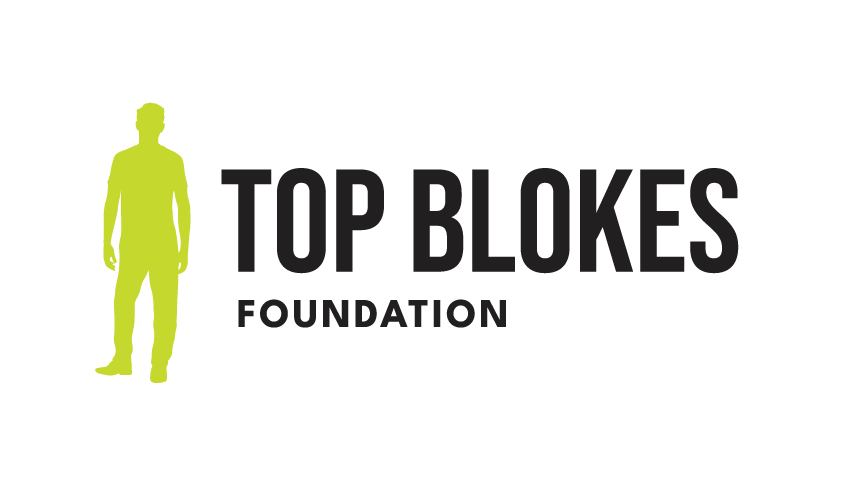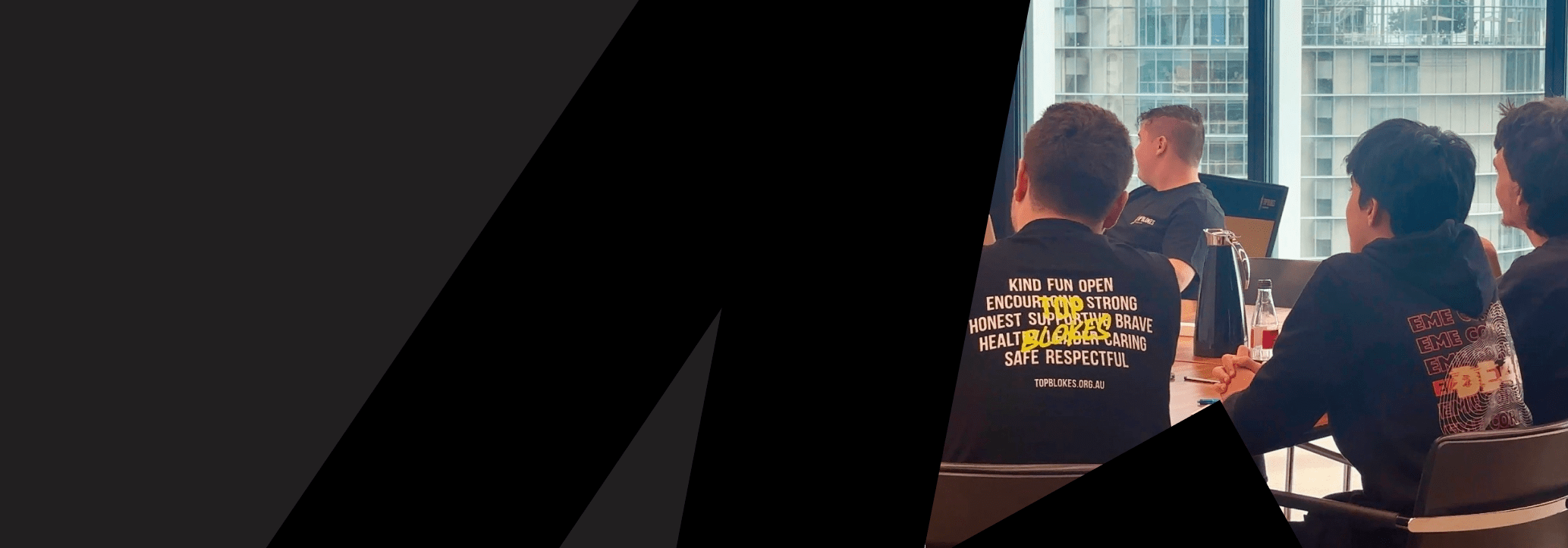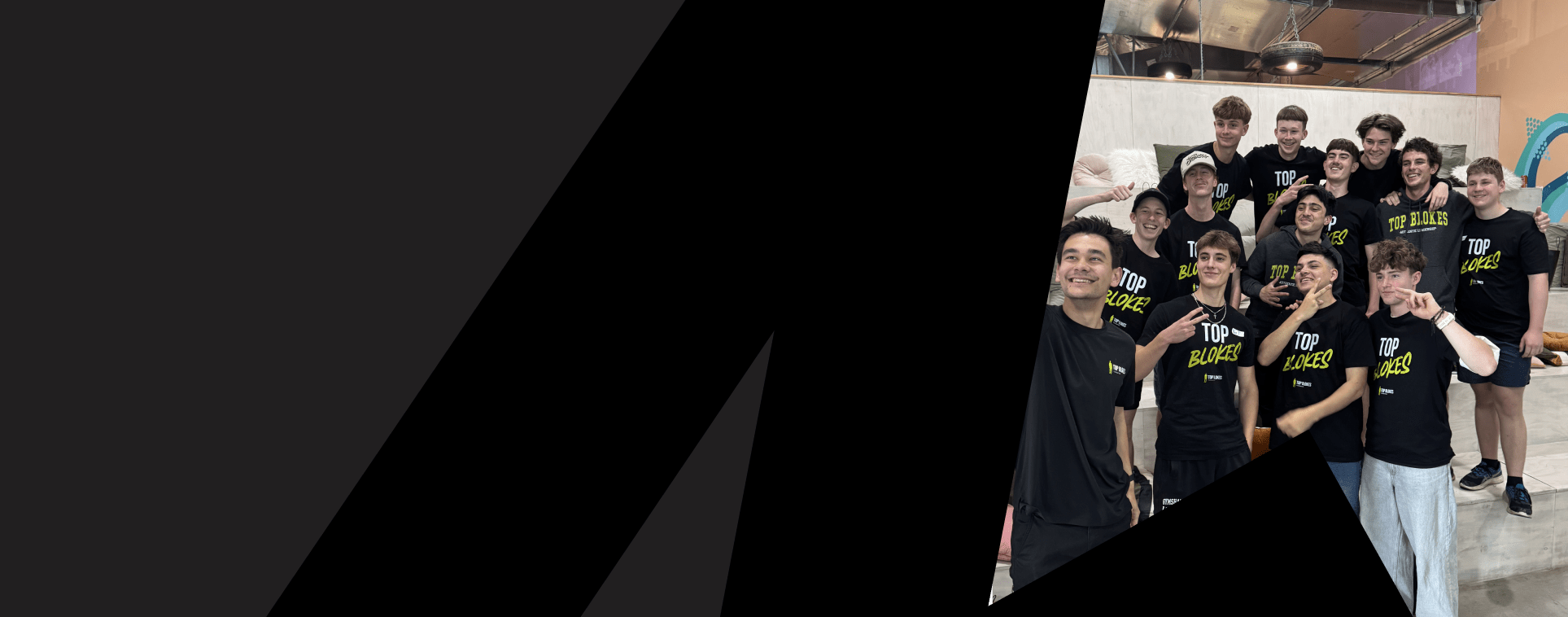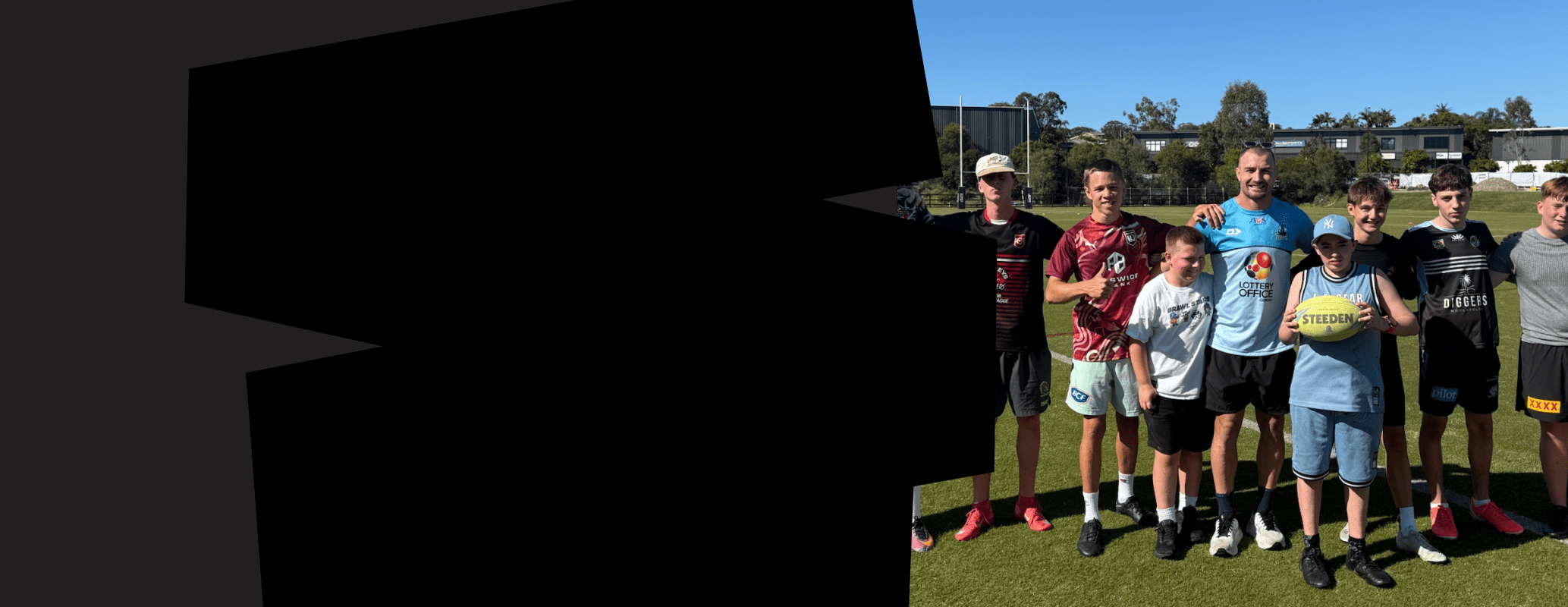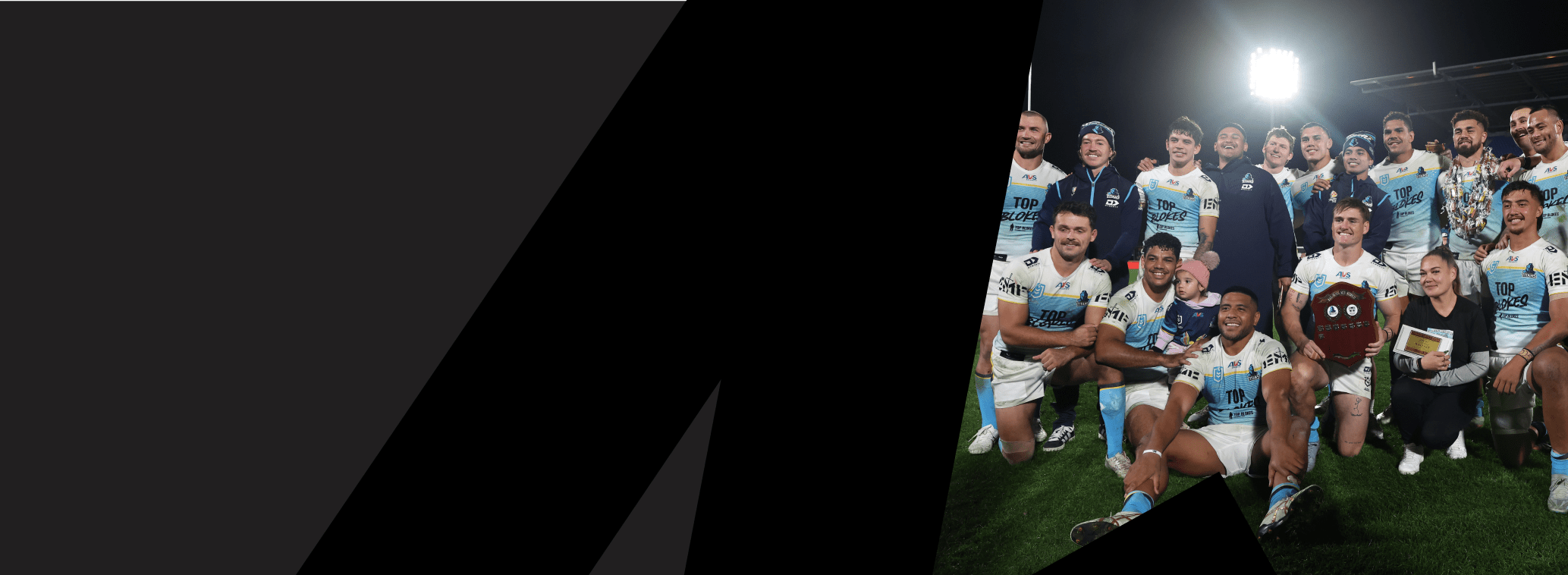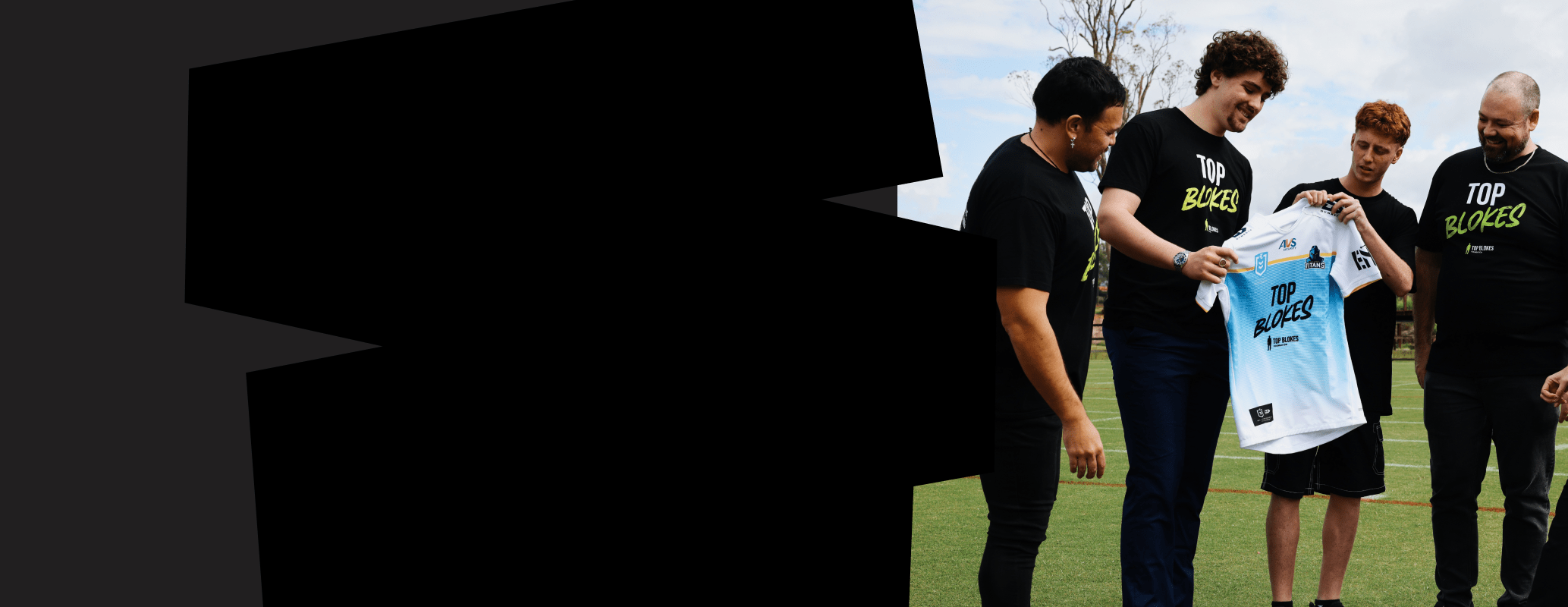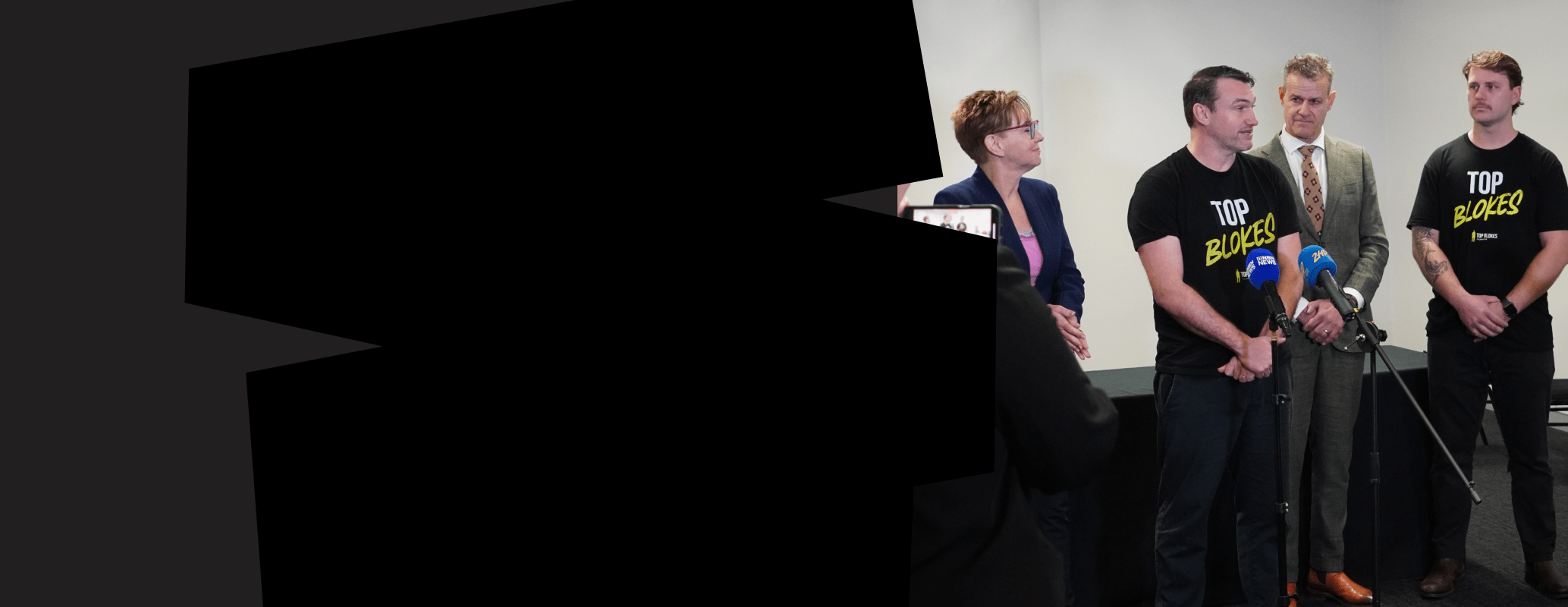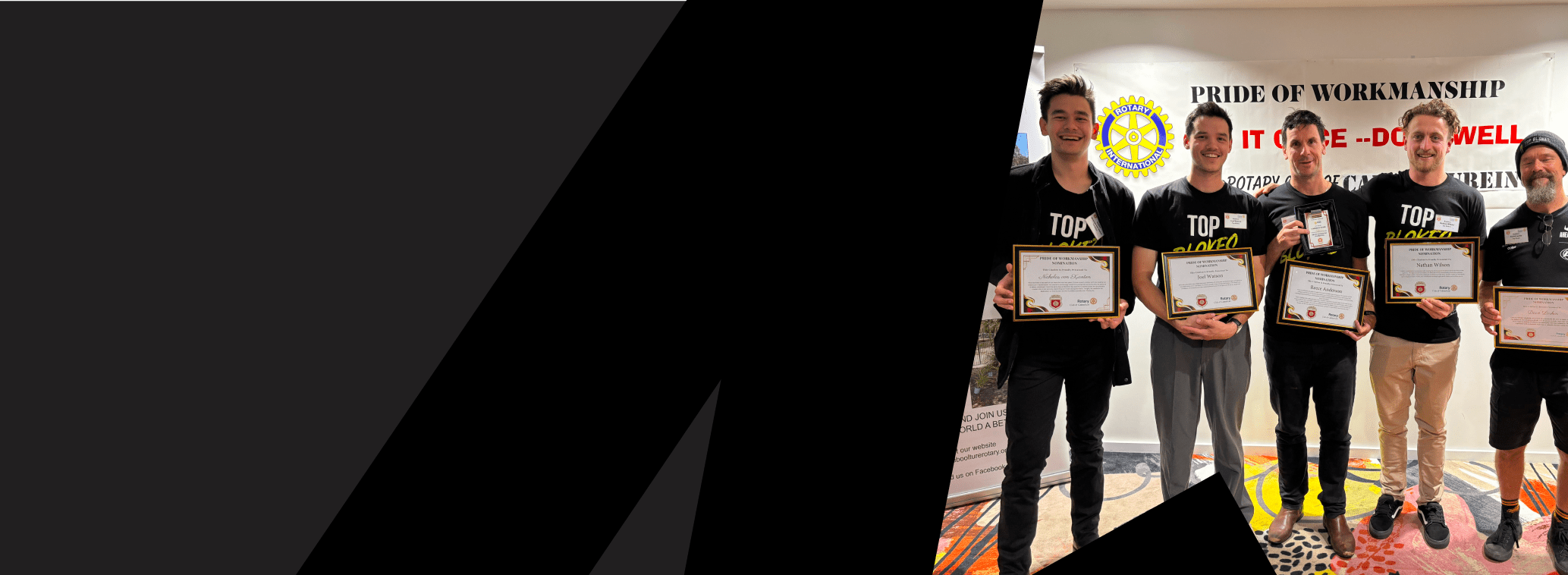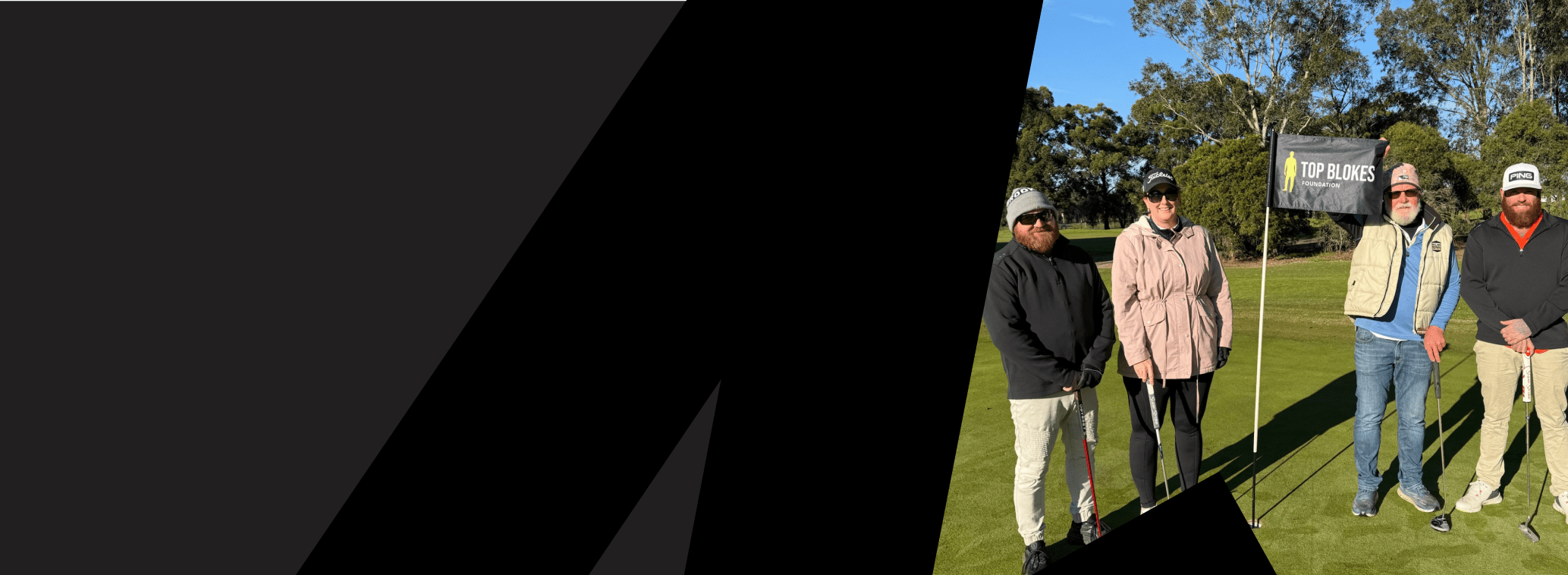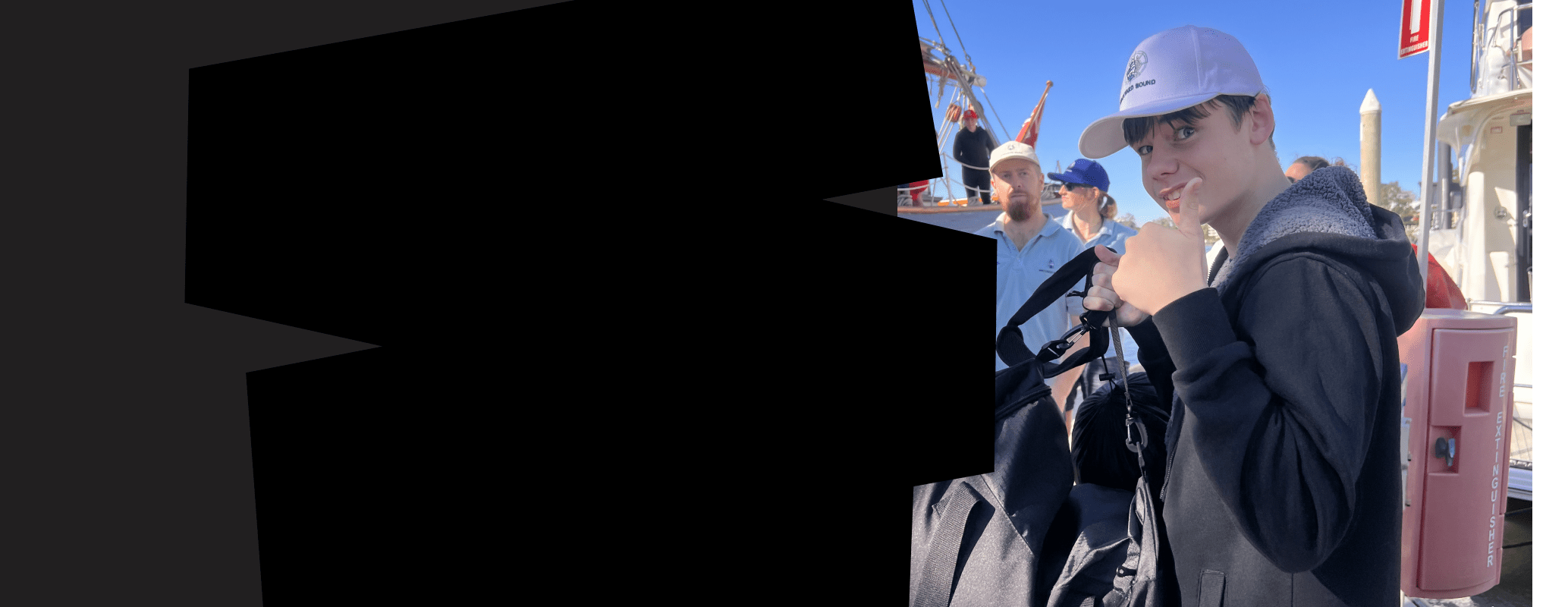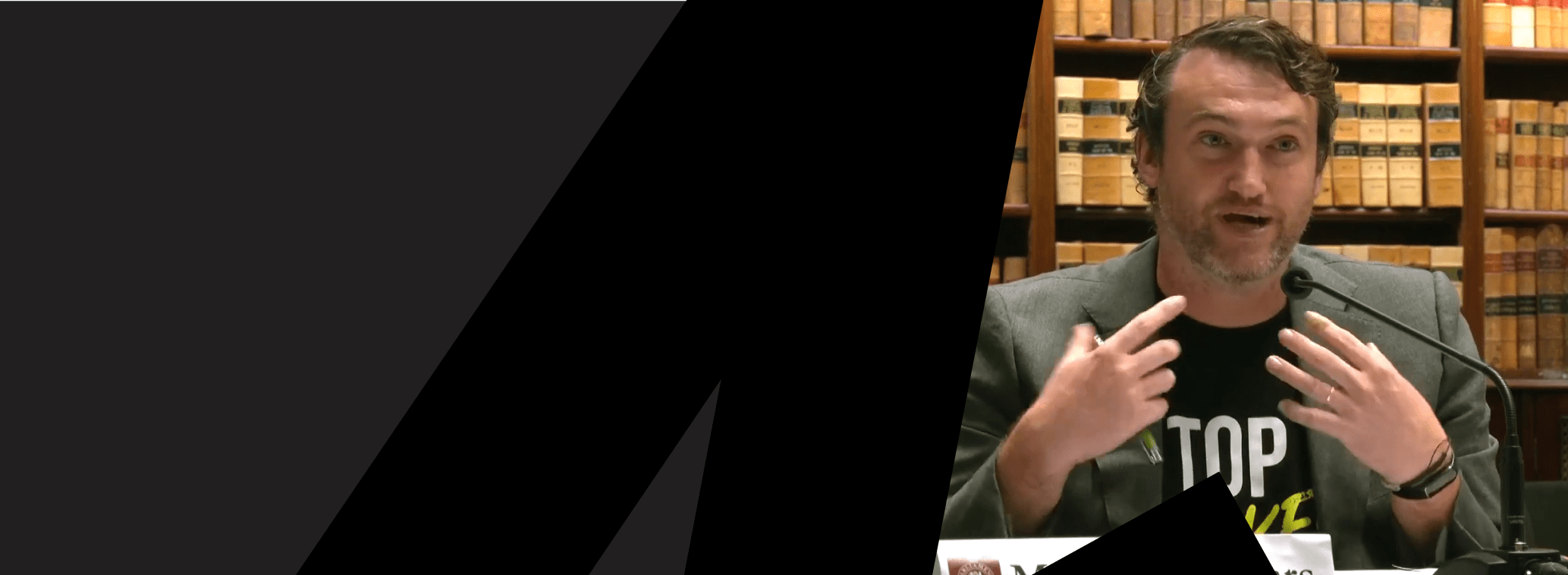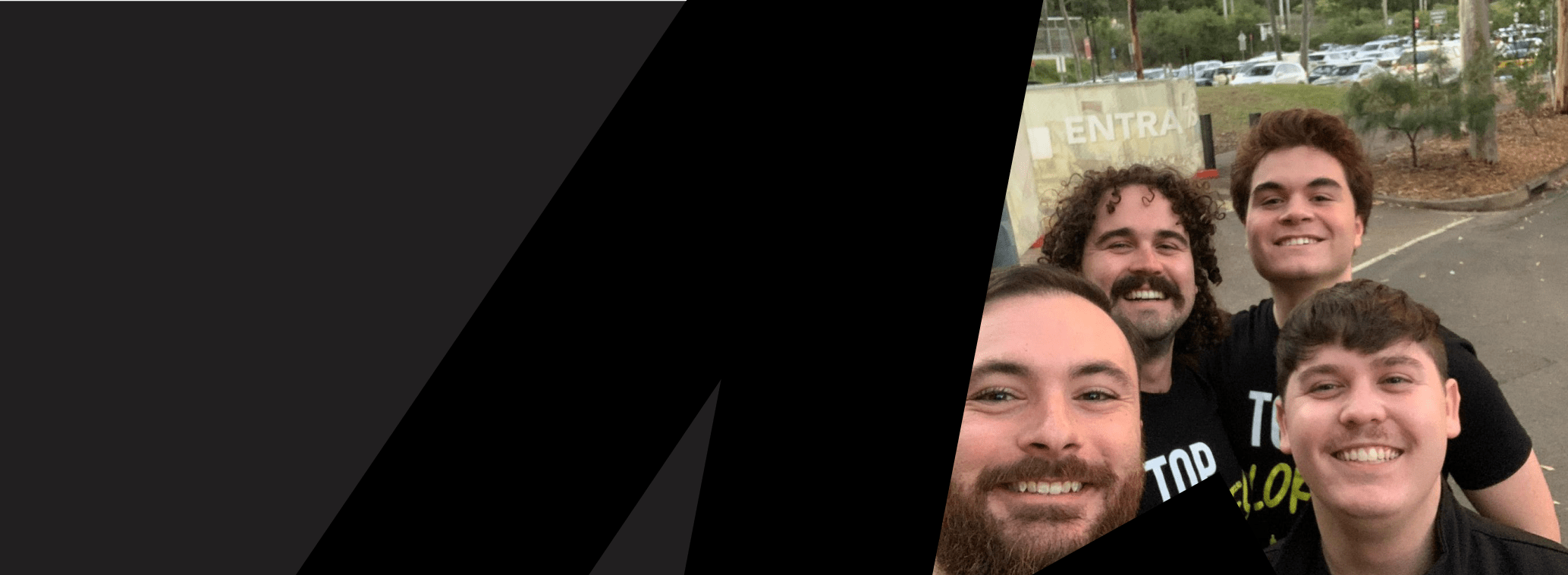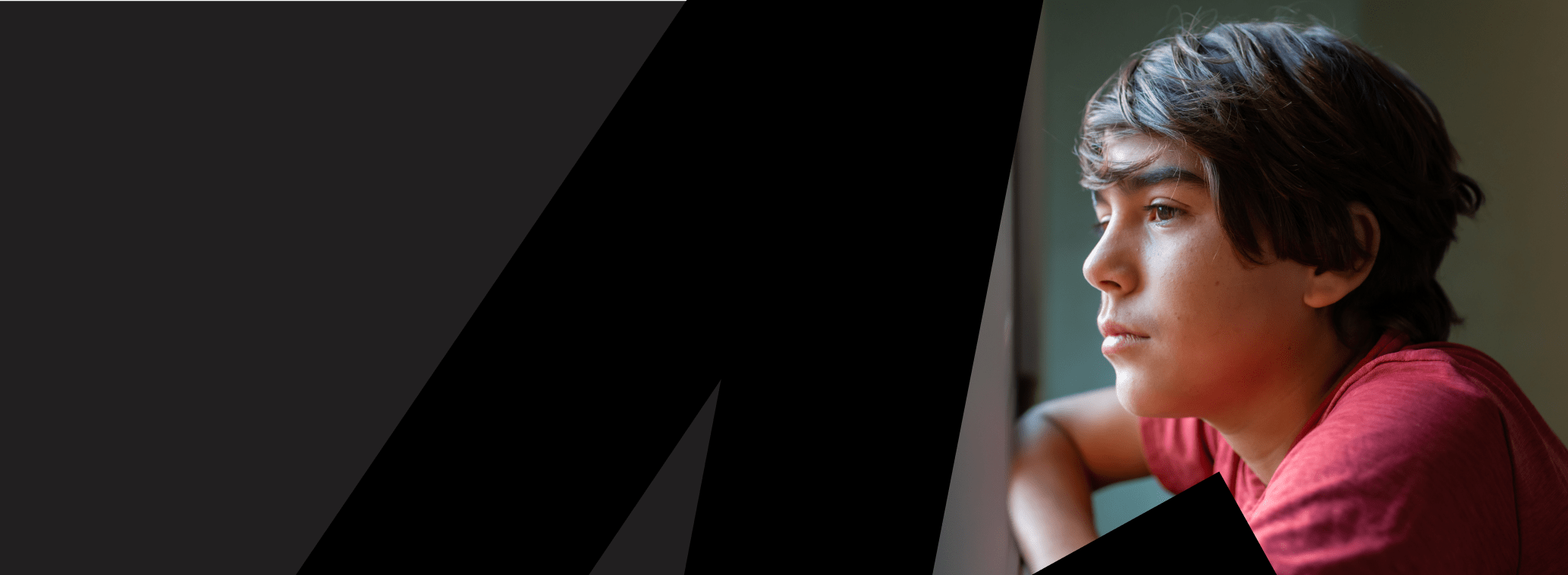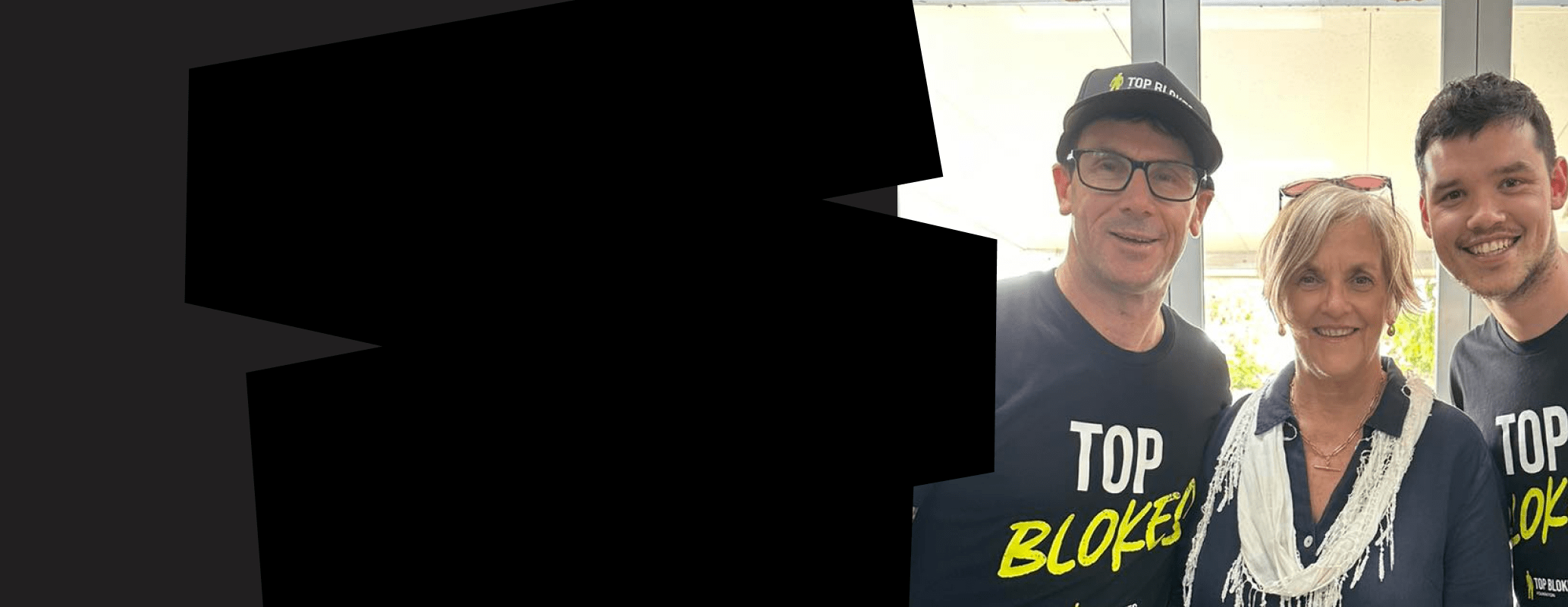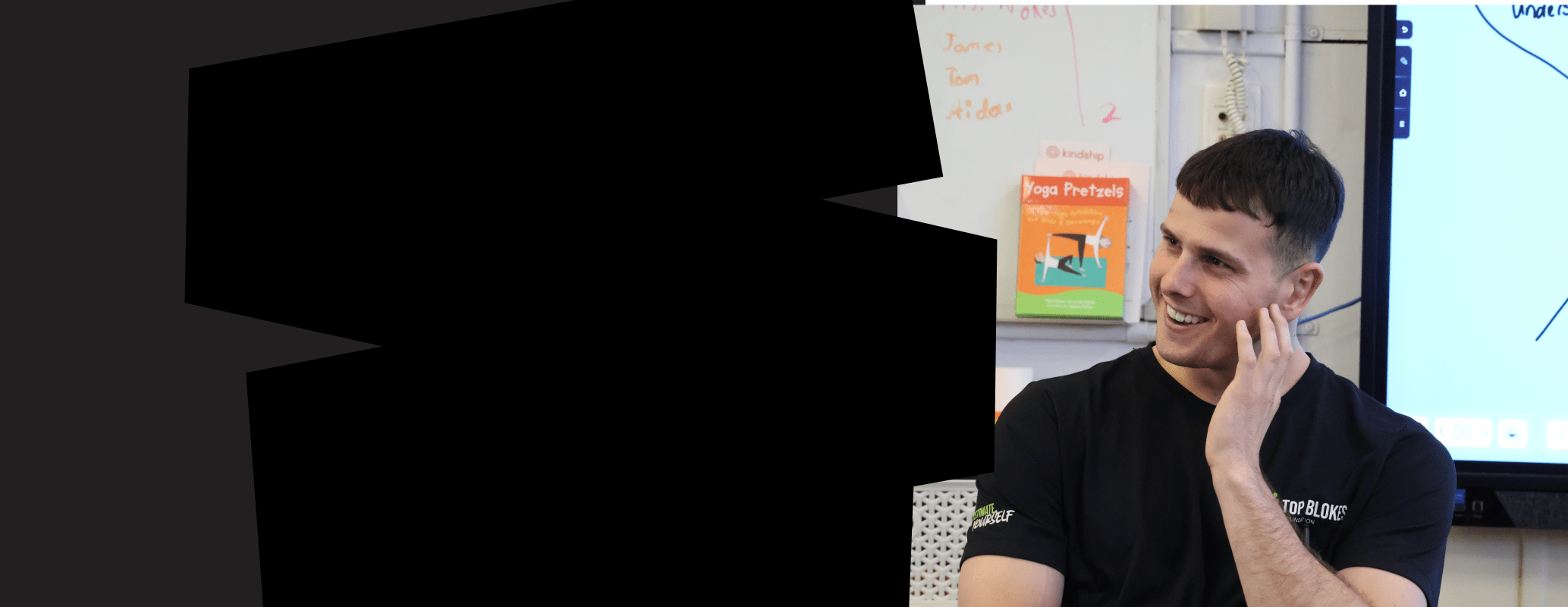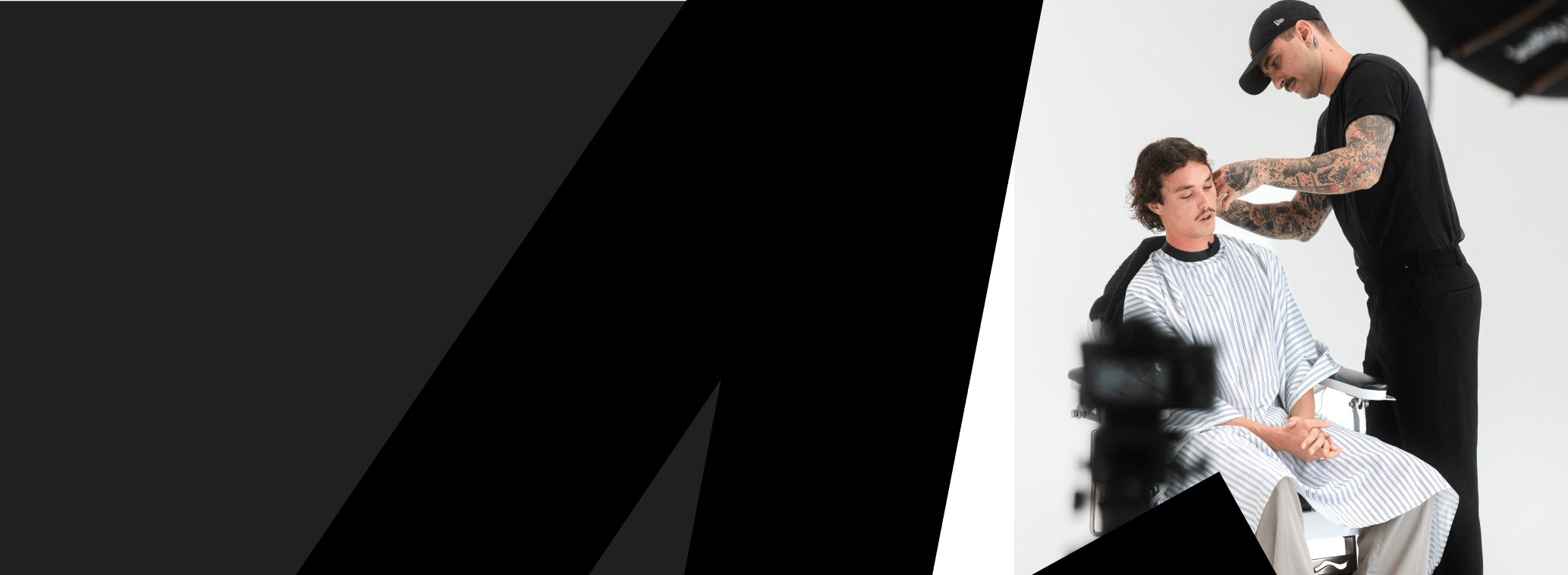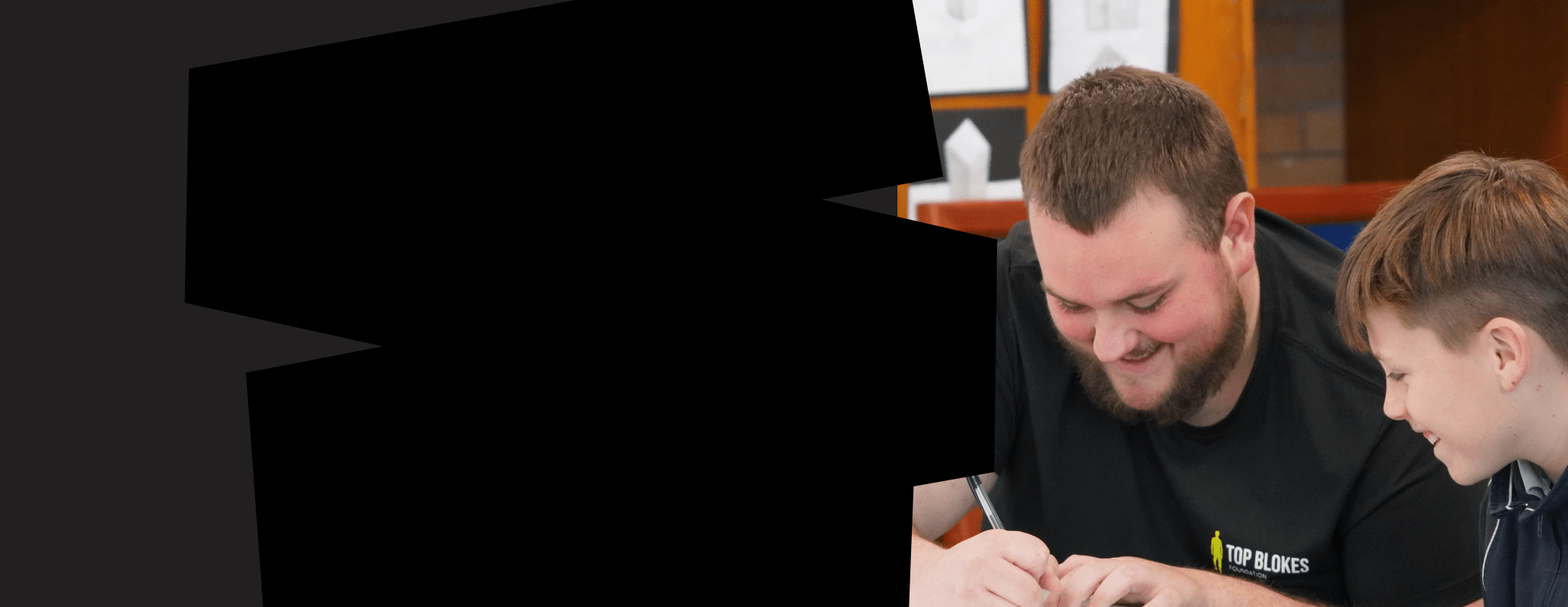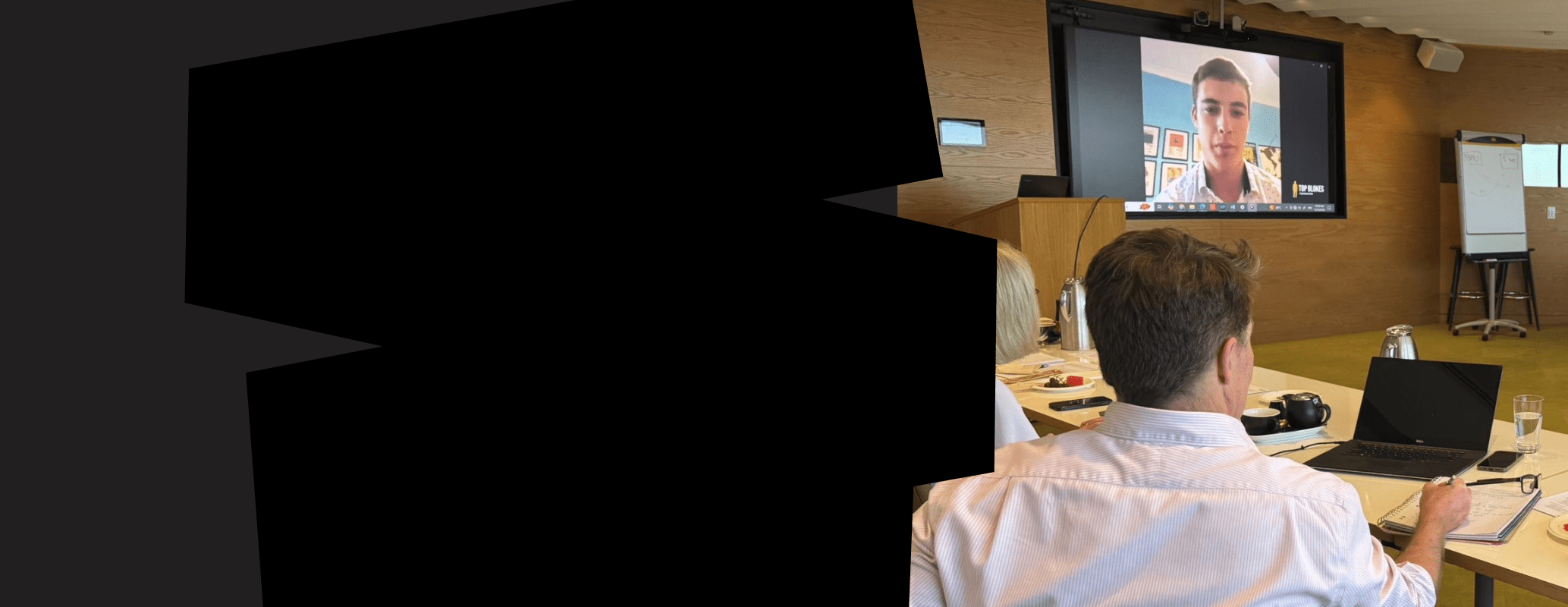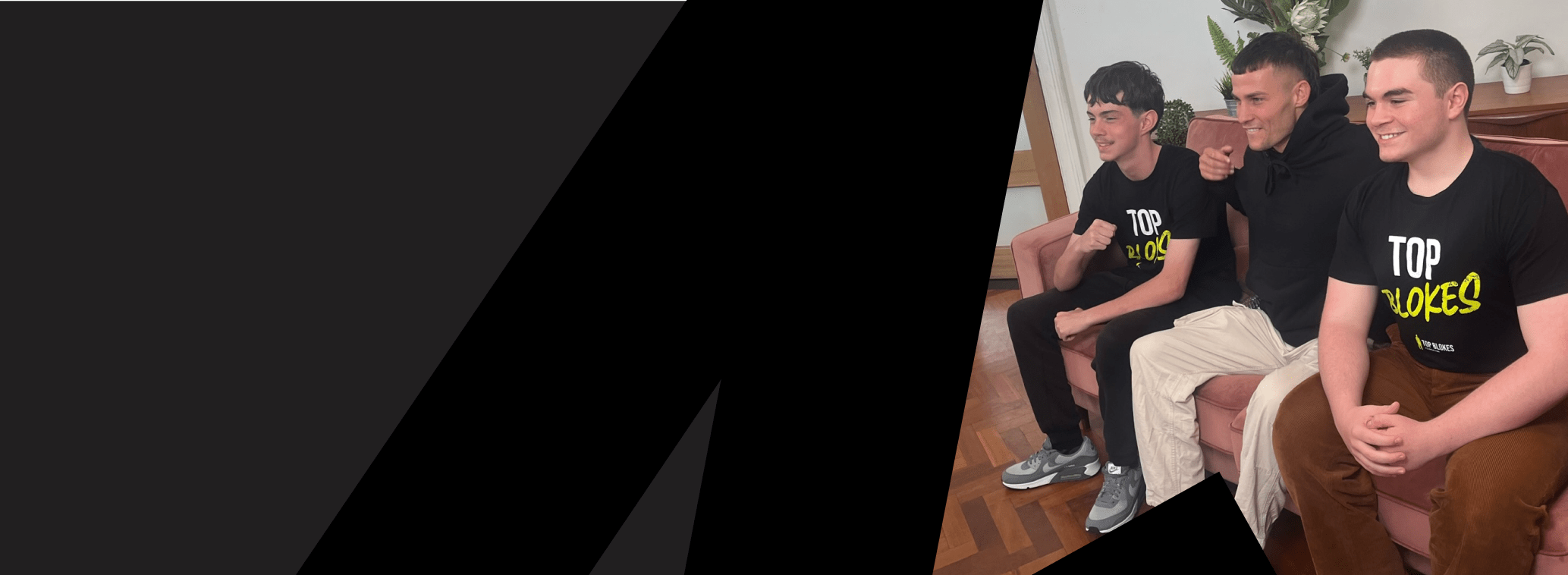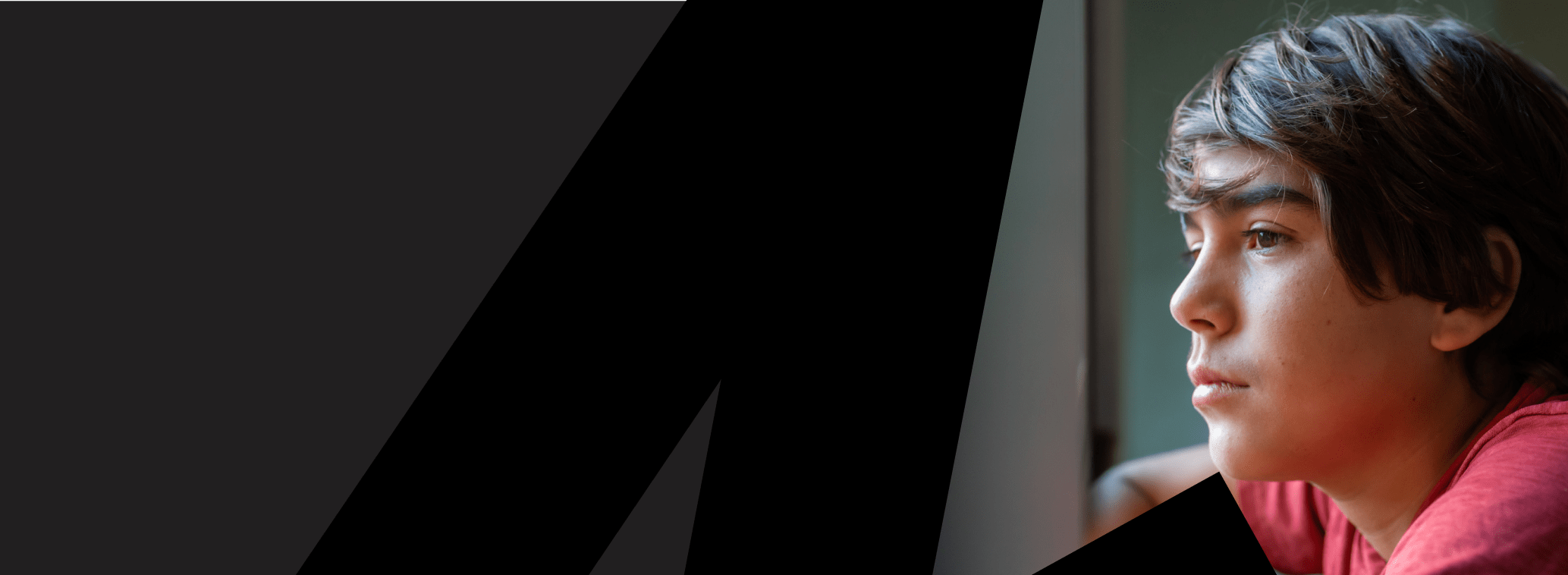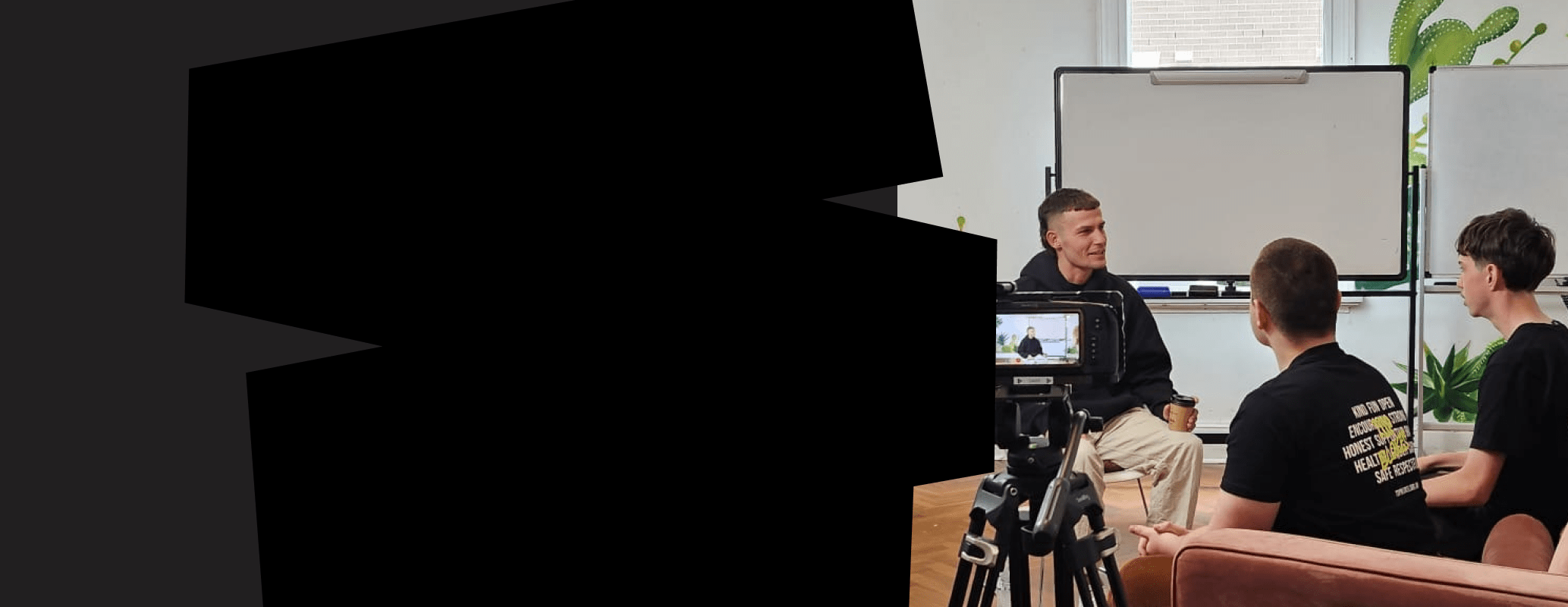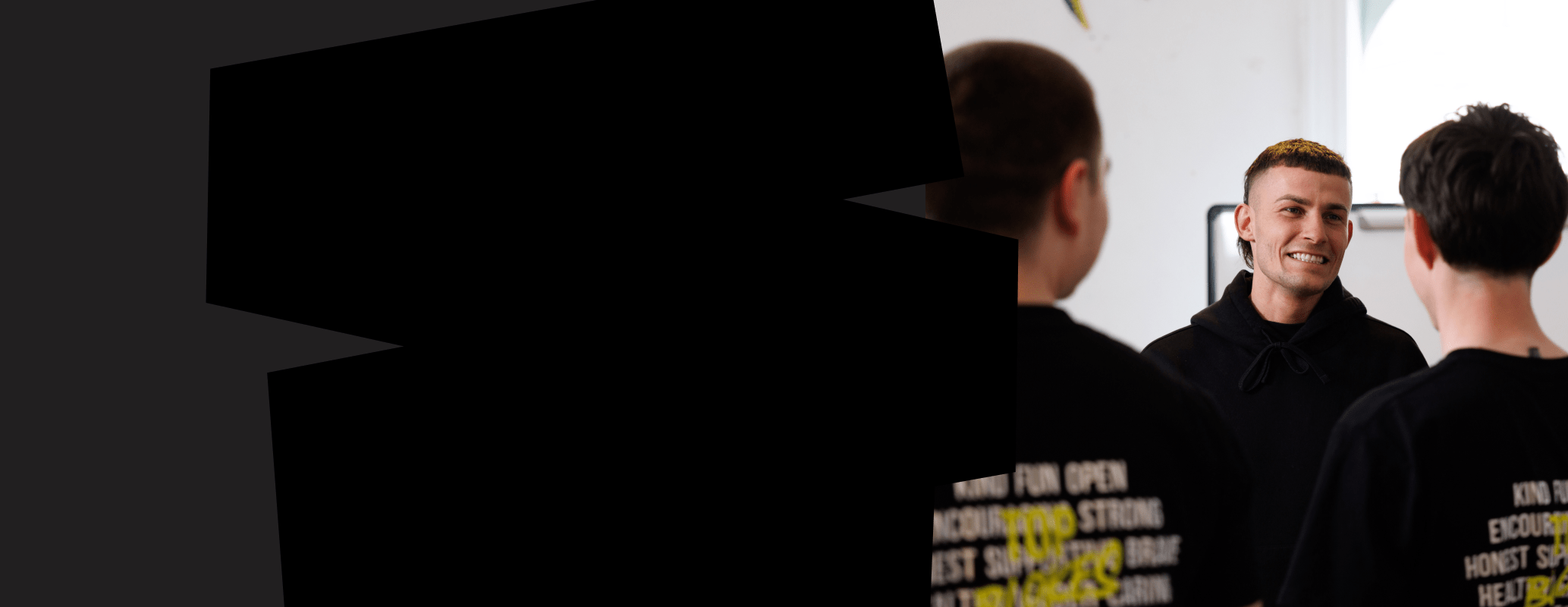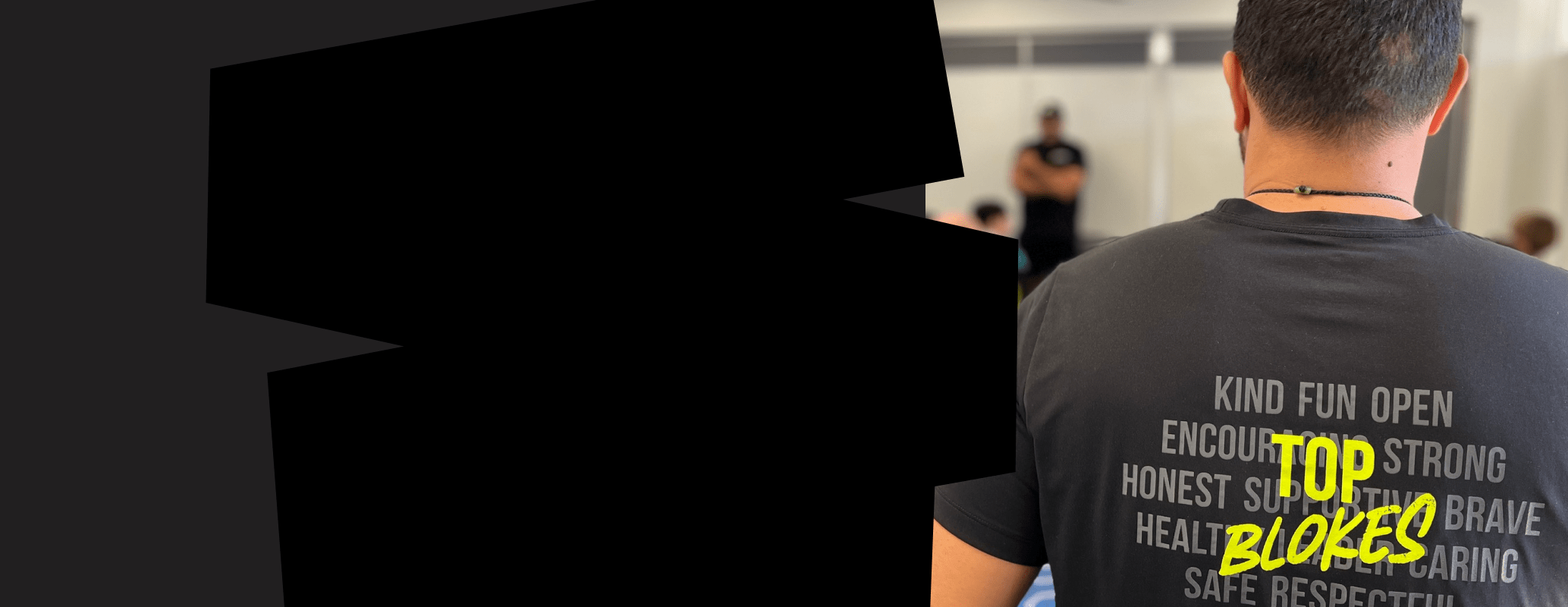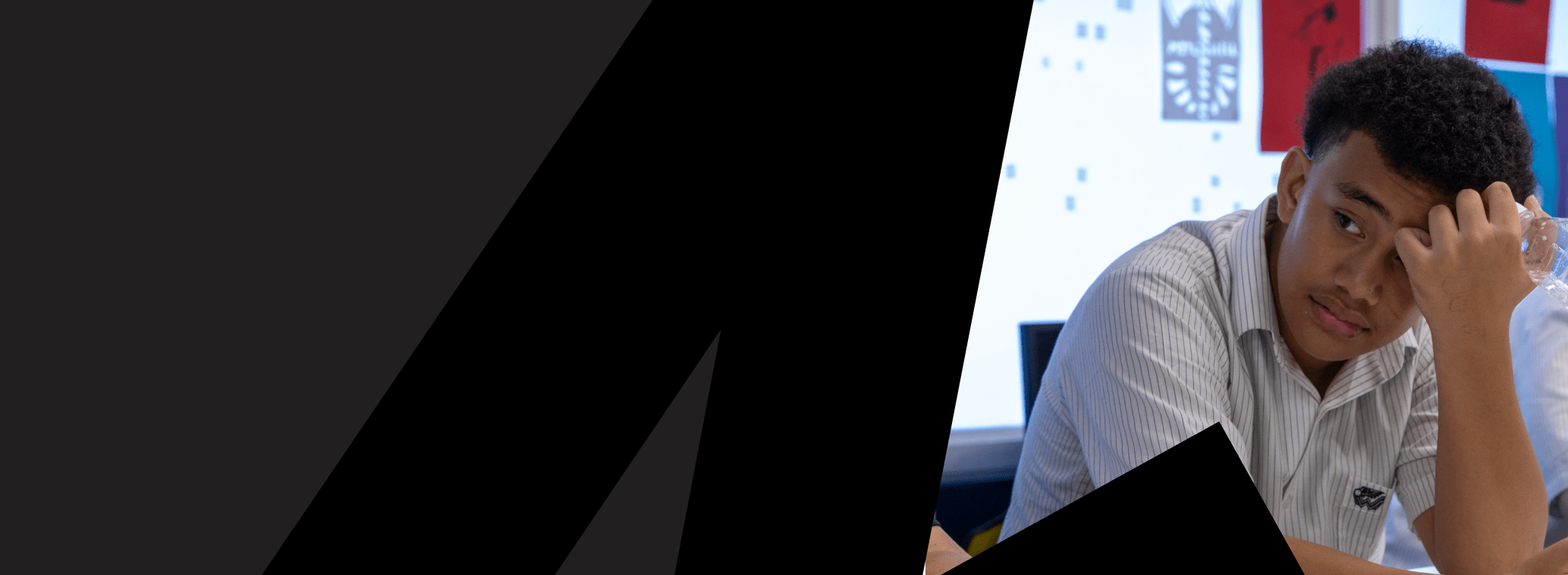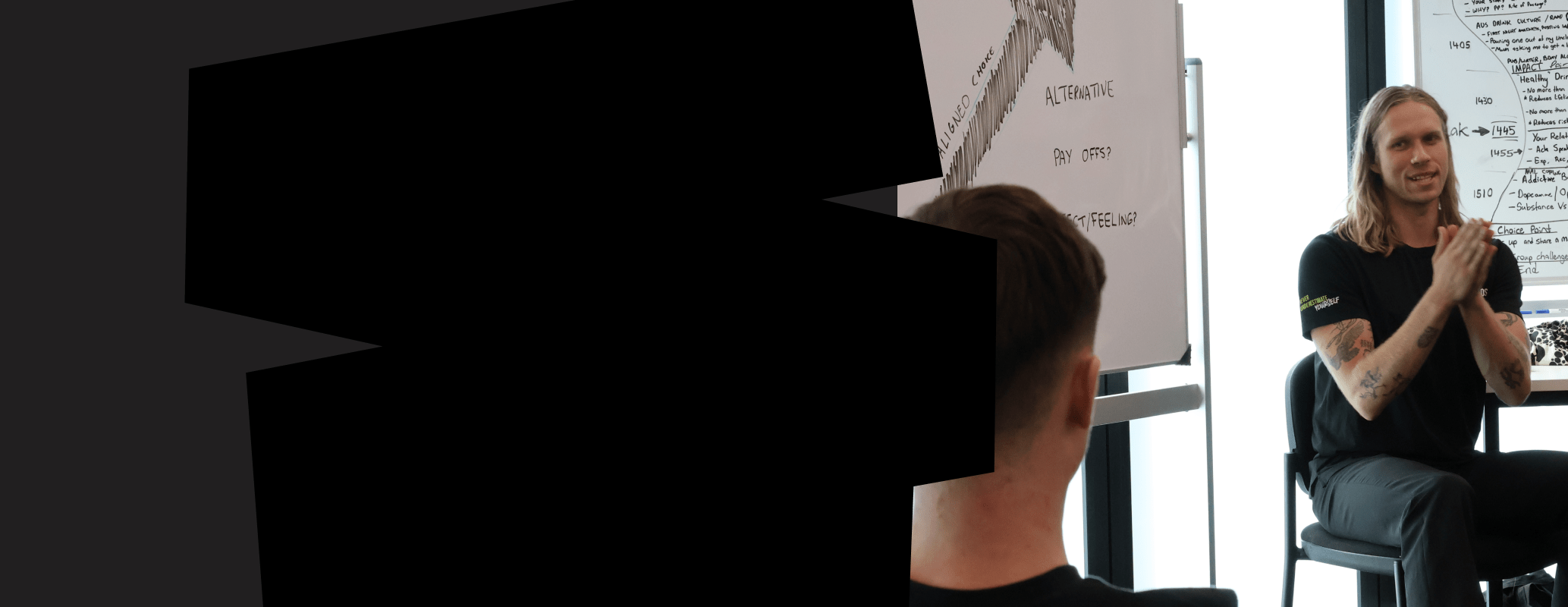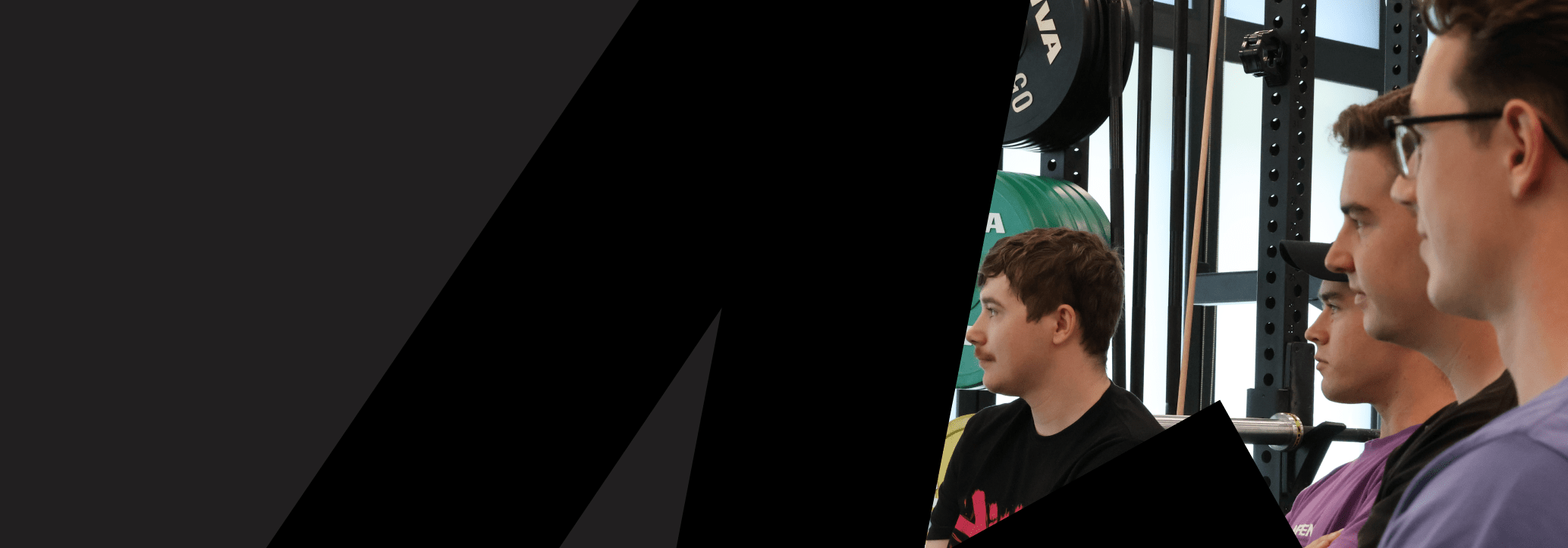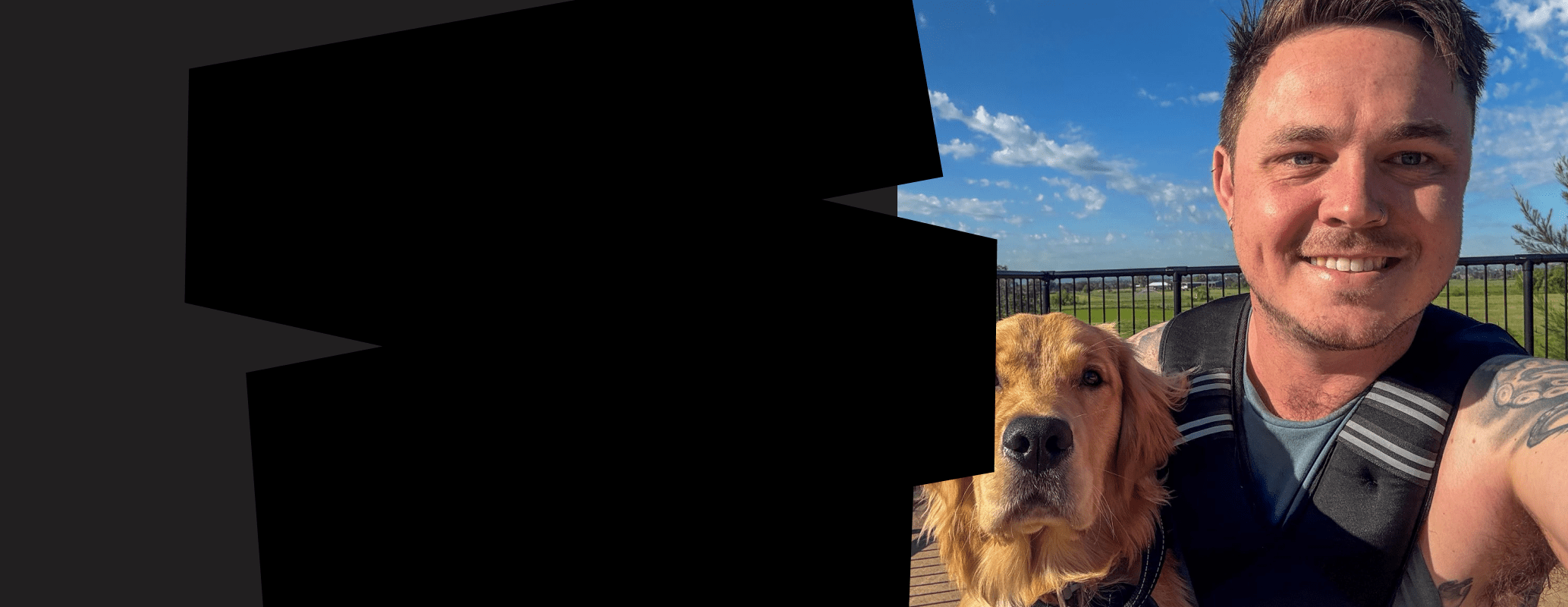Discover Top Blokes in your community
-
Boys, masculinity and hope: What the new Man Box study shows us
A new national study by Jesuit Social Services on boys and masculinity has sparked important conversation across schools, families and communities. The Adolescent Man Box…
-
Elevating young male voices: The impact we can have
When young men speak, change can happen. Earlier this month, the NSW Parliament released its report into the Impacts of Harmful Pornography on Mental, Emotional…
-
Finding purpose, living values
Twelve young men from across Australia came together in Brisbane for their first National Youth Ambassador Council meeting — a day built around connection, leadership,…
-
Top Blokes Takes Lift the Load to Sunrise
This morning, Sunrise featured the Top Blokes Foundation and its nationwide Lift the Load Challenge, a movement inspiring Australians to take action for young men’s…
-
Kieran Foran: Champion On and Off the Field
Kieran Foran, veteran NRL player and Top Blokes ambassador, has been awarded the prestigious Ken Stephen Medal at the 2025 Dally M Awards — one…
-
Why We Lift: Dan’s Story
Some emotions are simply part of being human. Anger, resentment, stress—we all feel them at different times. The challenge is what happens when men keep…
-
World Suicide Prevention Day
[TW: SUICIDE] Today is World Suicide Prevention Day. It’s a day to shine a light on the lives lost, the battles fought in silence, and…
-
Why We Lift: Matt
[TW: SUICIDE] For Matt, the Lift the Load Challenge represents something deeply personal. Behind the vest are years of lived experience, loss, and a drive…
-
Top Blokes hits the NRL
“My son couldn’t believe his eyes when he saw the Top Blokes logo on the Titans jersey. In that moment, he felt seen.” – Parent…
-
GC Titans reveal Top Blokes jersey ahead of Warriors game
[Source: Titans News] The Titans will be Top Blokes in Round 21, joining forces with the young men’s mental health charity, Top Blokes Foundation, alongside…
-
Top Blokes backs young men in Cessnock to prevent domestic and family violence
Top Blokes Foundation is proud to be one of 11 organisations selected under the NSW Government’s Primary Prevention Multi-Year Partnerships Grant Program – a major…
-
“I thought I was levelling up. But I was losing who I was.”
I started watching manosphere influencers when I was about 13. Partly because I felt a bit lost – but mostly, I was just curious. I…
-
Top Blokes team honoured for pride in workmanship
Last week, we had the chance to jump on the mic with 101.5FM and chat about the impact of the Top Blokes program across the…
-
We Tee Off for Men’s Health Week
This Men’s Health Week, Federal Member for the Hunter and Special Envoy for Men’s Health, Mr Dan Repacholi MP, is encouraging Aussie men to grab…
-
From the Classroom to the Open Sea
When Cooper first joined the Top Blokes mentoring program at Morayfield State High School, he was, in his own words, “this kid that wouldn’t be…
-
“We Don’t Talk About It, But It’s There”
Pornography is everywhere. For many young men, it’s often the first thing they see about sex — before a conversation with a trusted adult, before…
-
The anti-Andrew Tate: how youth workers can counteract the impact of masculinity influencers
[Author: Amanda Dylina Morse, Research Fellow, Queen’s University Belfast] Andrew Tate – online content creator, podcaster, former kickboxer, and subject of ongoing human trafficking investigations –…
-
101 guide to catfishing
Catfishing is on the increase and teenage boys seem to have a target on their backs.
-
Shared Values, Shared Vision: The Youth Ambassador Council Looks Ahead
In a cross-state meet-up, the Top Blokes Youth Ambassador Council gathered for their latest council meeting, with the boys tuning in from Sydney and Brisbane…
-
Young men, the algorithm, and what they’re really searching for
Last week, Movember released a powerful new report, Young Men’s Health in a Digital World, shining a spotlight on something we see through our work:…
-
Creating Brave Spaces
Our awesome Regional Coordinator on the Sunshine Coast, QLD chats to local radio station Caboolture Community 101.5FM with Rotary Association member Shane. Reece shares with…
-
Meet Toby: From the footy field to the classroom
At Top Blokes, we believe that strong role models can make all the difference in a young man’s life. Toby is one of those role…
-
Why are boys turning to the manosphere?
The Netflix series Adolescence has struck a nerve — and for good reason. It’s powerful, emotional, and at times devastating. But more than anything, it’s…
-
Top Blokes bring young men’s perspectives to the table at Parliamentary hearing on pornography
Today, the Top Blokes Foundation is speaking at the NSW Parliamentary Inquiry into the impacts of harmful pornography on the mental, emotional, and physical health…
-
Three takeaways every young man needs about sexual health
Sex education shouldn’t be awkward, confusing, or just a one-time chat. But for many young men, that’s exactly what it is. Between vague school lessons,…
-
Let’s talk porn, connection and real relationships
There’s something about a barbershop that brings out real conversations. Maybe it’s the laid-back vibe, the hum of clippers, or the unspoken trust between the…
-
Finding Strength in Vulnerability: Hayden’s Journey from Participant to Mentor
When you meet Hayden, the first thing you notice is his energy—an infectious, confident presence that seems to radiate wisdom far beyond his 18 years.…
-
Young voices lead the way: Shaping our next three year strategic plan
At Top Blokes Foundation, we believe in the power of young people to lead, inspire, and create change. Last week, we saw this belief come…
-
Feeding the Light Wolf: Harry Garside’s lessons on resilience and growth
How do we navigate setbacks, self-doubt, and life’s toughest moments? For Harry Garside, professional boxer, Top Blokes ambassador and mental health advocate, the answer lies…
-
Alarming new research – 20% of ASIO priority counter-terrorism cases now involve minors
The Australian Security Intelligence Organisation (ASIO) has reported that 20% of its priority counter-terrorism cases now involve minors, underscoring an urgent need for early intervention.…
-
Navigating mental health and wellbeing
On the eve of International Men’s Day – 19 November – Salim and Daniel speak openly with Top Blokes ambassador, Harry Garside about the emotional…
-
Rethinking masculinity
When was the last time you thought about what it truly means to be masculine? For years, society has boxed masculinity into a rigid, outdated…
-
Harry Garside on a mission to help shape the next generation of men
Harry Garside, an Olympic boxer and positive role model for boys and young men across Australia, is joining the Top Blokes family as our newest…
-
Why do young males die by suicide?
[TW: Suicide] 10 September marked World Suicide Prevention Day – a global day raising awareness, changing the narrative and showing us that we all have…
-
Risk and Reward : From Fitting in to Standing Out
Peer pressure – two words that can send a shiver down the spine of any parent or educator. It’s the invisible force that can nudge…
-
Understanding the Teenage Male Brain: A Guide for Parents and Educators
Renowned parenting expert and Top Blokes ambassador, Dr. Justin Coulson, sheds light on the evolving male brain, giving some fundamental information that can help us…
-
Zhalin’s journey from youth to Youth Worker
Explore the inspiring journey of Zhalin, a passionate and experienced Youth Worker at Top Blokes. Discover how his unique background and commitment have shaped his…
-
Celebrating 30 years of Men’s Health Week: Time to do your health check
From Monday, June 10 to Sunday, June 16, we’re marking a major milestone: the 30th anniversary of International Men’s Health Week. This year, we’re putting…
-
Empowering young men: Kate’s commitment to mentorship
From personal trials to discovering the power of positive mentorship, Kate’s story underscores the incredible impact compassionate guidance can have.
-
Youth Week: Dr. Justin Coulson Joins Top Blokes as Ambassador
This Youth Week, it is important to be reminded that all young lives matter, and the conversations around mental health are more prevalent than ever.…
-
Chris: A Journey of Transformation with Top Blokes
At just 18, Chris from Toowoomba embarked on an extraordinary journey that would not only transform his outlook on life but also inspire him to…
-
Why men need a different approach to wellbeing
Most young men entering the workforce for the first time want support, guidance and connection. But walk them into a big wellbeing session or hand…
-
Supporting Men and Boys – International Men’s Day 2025
Today is International Men’s Day, a time to recognise the achievements of men and boys, highlight positive role models, and focus on their mental and…
-
Why the school-to-work transition is a time of difficulty for young men
The leap from school to the workplace can be exciting — but for many young men, it’s also one of the most challenging times of…
-
Aaron Speaks to ABC Newcastle on the “Man Box” and What Boys Really Need
Yesterday, our Greater Hunter Regional Coordinator Aaron joined ABC Newcastle to unpack the latest Adolescent Man Box Study by Jesuit Social Services. The study explores…
-
Midcoast Trucks Drive Change, Raising Over $100,000 for Young Men’s Mental Health
In their very first year taking on the Lift the Load Challenge, the team at Midcoast Trucks have made history – raising an incredible $100,523…
-
We lifted the load – together
1,796 people signed up. $581,394 raised (and still counting). 571,962.5 kilometres tracked. This October, something powerful happened. Across the country, people put on a 10kg…
-
Boys, masculinity and hope: What the new Man Box study shows us
A new national study by Jesuit Social Services on boys and masculinity has sparked important conversation across schools, families and communities. The Adolescent Man Box…
-
Elevating young male voices: The impact we can have
When young men speak, change can happen. Earlier this month, the NSW Parliament released its report into the Impacts of Harmful Pornography on Mental, Emotional…
-
Finding purpose, living values
Twelve young men from across Australia came together in Brisbane for their first National Youth Ambassador Council meeting — a day built around connection, leadership,…
-
Top Blokes Takes Lift the Load to Sunrise
This morning, Sunrise featured the Top Blokes Foundation and its nationwide Lift the Load Challenge, a movement inspiring Australians to take action for young men’s…
-
Kieran Foran: Champion On and Off the Field
Kieran Foran, veteran NRL player and Top Blokes ambassador, has been awarded the prestigious Ken Stephen Medal at the 2025 Dally M Awards — one…
-
Why We Lift: Dan’s Story
Some emotions are simply part of being human. Anger, resentment, stress—we all feel them at different times. The challenge is what happens when men keep…
-
World Suicide Prevention Day
[TW: SUICIDE] Today is World Suicide Prevention Day. It’s a day to shine a light on the lives lost, the battles fought in silence, and…
-
Why We Lift: Matt
[TW: SUICIDE] For Matt, the Lift the Load Challenge represents something deeply personal. Behind the vest are years of lived experience, loss, and a drive…
-
Top Blokes hits the NRL
“My son couldn’t believe his eyes when he saw the Top Blokes logo on the Titans jersey. In that moment, he felt seen.” – Parent…
-
GC Titans reveal Top Blokes jersey ahead of Warriors game
[Source: Titans News] The Titans will be Top Blokes in Round 21, joining forces with the young men’s mental health charity, Top Blokes Foundation, alongside…
-
Top Blokes backs young men in Cessnock to prevent domestic and family violence
Top Blokes Foundation is proud to be one of 11 organisations selected under the NSW Government’s Primary Prevention Multi-Year Partnerships Grant Program – a major…
-
“I thought I was levelling up. But I was losing who I was.”
I started watching manosphere influencers when I was about 13. Partly because I felt a bit lost – but mostly, I was just curious. I…
-
Top Blokes team honoured for pride in workmanship
Last week, we had the chance to jump on the mic with 101.5FM and chat about the impact of the Top Blokes program across the…
-
We Tee Off for Men’s Health Week
This Men’s Health Week, Federal Member for the Hunter and Special Envoy for Men’s Health, Mr Dan Repacholi MP, is encouraging Aussie men to grab…
-
From the Classroom to the Open Sea
When Cooper first joined the Top Blokes mentoring program at Morayfield State High School, he was, in his own words, “this kid that wouldn’t be…
-
“We Don’t Talk About It, But It’s There”
Pornography is everywhere. For many young men, it’s often the first thing they see about sex — before a conversation with a trusted adult, before…
-
The anti-Andrew Tate: how youth workers can counteract the impact of masculinity influencers
[Author: Amanda Dylina Morse, Research Fellow, Queen’s University Belfast] Andrew Tate – online content creator, podcaster, former kickboxer, and subject of ongoing human trafficking investigations –…
-
101 guide to catfishing
Catfishing is on the increase and teenage boys seem to have a target on their backs.
-
Shared Values, Shared Vision: The Youth Ambassador Council Looks Ahead
In a cross-state meet-up, the Top Blokes Youth Ambassador Council gathered for their latest council meeting, with the boys tuning in from Sydney and Brisbane…
-
Young men, the algorithm, and what they’re really searching for
Last week, Movember released a powerful new report, Young Men’s Health in a Digital World, shining a spotlight on something we see through our work:…
-
Creating Brave Spaces
Our awesome Regional Coordinator on the Sunshine Coast, QLD chats to local radio station Caboolture Community 101.5FM with Rotary Association member Shane. Reece shares with…
-
Meet Toby: From the footy field to the classroom
At Top Blokes, we believe that strong role models can make all the difference in a young man’s life. Toby is one of those role…
-
Why are boys turning to the manosphere?
The Netflix series Adolescence has struck a nerve — and for good reason. It’s powerful, emotional, and at times devastating. But more than anything, it’s…
-
Top Blokes bring young men’s perspectives to the table at Parliamentary hearing on pornography
Today, the Top Blokes Foundation is speaking at the NSW Parliamentary Inquiry into the impacts of harmful pornography on the mental, emotional, and physical health…
-
Three takeaways every young man needs about sexual health
Sex education shouldn’t be awkward, confusing, or just a one-time chat. But for many young men, that’s exactly what it is. Between vague school lessons,…
-
Let’s talk porn, connection and real relationships
There’s something about a barbershop that brings out real conversations. Maybe it’s the laid-back vibe, the hum of clippers, or the unspoken trust between the…
-
Finding Strength in Vulnerability: Hayden’s Journey from Participant to Mentor
When you meet Hayden, the first thing you notice is his energy—an infectious, confident presence that seems to radiate wisdom far beyond his 18 years.…
-
Young voices lead the way: Shaping our next three year strategic plan
At Top Blokes Foundation, we believe in the power of young people to lead, inspire, and create change. Last week, we saw this belief come…
-
Feeding the Light Wolf: Harry Garside’s lessons on resilience and growth
How do we navigate setbacks, self-doubt, and life’s toughest moments? For Harry Garside, professional boxer, Top Blokes ambassador and mental health advocate, the answer lies…
-
Alarming new research – 20% of ASIO priority counter-terrorism cases now involve minors
The Australian Security Intelligence Organisation (ASIO) has reported that 20% of its priority counter-terrorism cases now involve minors, underscoring an urgent need for early intervention.…
-
Navigating mental health and wellbeing
On the eve of International Men’s Day – 19 November – Salim and Daniel speak openly with Top Blokes ambassador, Harry Garside about the emotional…
-
Rethinking masculinity
When was the last time you thought about what it truly means to be masculine? For years, society has boxed masculinity into a rigid, outdated…
-
Harry Garside on a mission to help shape the next generation of men
Harry Garside, an Olympic boxer and positive role model for boys and young men across Australia, is joining the Top Blokes family as our newest…
-
Why do young males die by suicide?
[TW: Suicide] 10 September marked World Suicide Prevention Day – a global day raising awareness, changing the narrative and showing us that we all have…
-
Risk and Reward : From Fitting in to Standing Out
Peer pressure – two words that can send a shiver down the spine of any parent or educator. It’s the invisible force that can nudge…
-
Understanding the Teenage Male Brain: A Guide for Parents and Educators
Renowned parenting expert and Top Blokes ambassador, Dr. Justin Coulson, sheds light on the evolving male brain, giving some fundamental information that can help us…
-
Zhalin’s journey from youth to Youth Worker
Explore the inspiring journey of Zhalin, a passionate and experienced Youth Worker at Top Blokes. Discover how his unique background and commitment have shaped his…
-
Celebrating 30 years of Men’s Health Week: Time to do your health check
From Monday, June 10 to Sunday, June 16, we’re marking a major milestone: the 30th anniversary of International Men’s Health Week. This year, we’re putting…
-
Empowering young men: Kate’s commitment to mentorship
From personal trials to discovering the power of positive mentorship, Kate’s story underscores the incredible impact compassionate guidance can have.
-
Youth Week: Dr. Justin Coulson Joins Top Blokes as Ambassador
This Youth Week, it is important to be reminded that all young lives matter, and the conversations around mental health are more prevalent than ever.…
-
Chris: A Journey of Transformation with Top Blokes
At just 18, Chris from Toowoomba embarked on an extraordinary journey that would not only transform his outlook on life but also inspire him to…
-
Why men need a different approach to wellbeing
Most young men entering the workforce for the first time want support, guidance and connection. But walk them into a big wellbeing session or hand…
-
Supporting Men and Boys – International Men’s Day 2025
Today is International Men’s Day, a time to recognise the achievements of men and boys, highlight positive role models, and focus on their mental and…
-
Why the school-to-work transition is a time of difficulty for young men
The leap from school to the workplace can be exciting — but for many young men, it’s also one of the most challenging times of…
-
Aaron Speaks to ABC Newcastle on the “Man Box” and What Boys Really Need
Yesterday, our Greater Hunter Regional Coordinator Aaron joined ABC Newcastle to unpack the latest Adolescent Man Box Study by Jesuit Social Services. The study explores…
-
Midcoast Trucks Drive Change, Raising Over $100,000 for Young Men’s Mental Health
In their very first year taking on the Lift the Load Challenge, the team at Midcoast Trucks have made history – raising an incredible $100,523…
-
We lifted the load – together
1,796 people signed up. $581,394 raised (and still counting). 571,962.5 kilometres tracked. This October, something powerful happened. Across the country, people put on a 10kg…
LIFT THE LOAD
Carry the weight, SO THEY DON’t HAVE TO
During Mental Health Month this October, join us as we Lift the Load for better mental health for boys and young men.
START FUNDRAISING